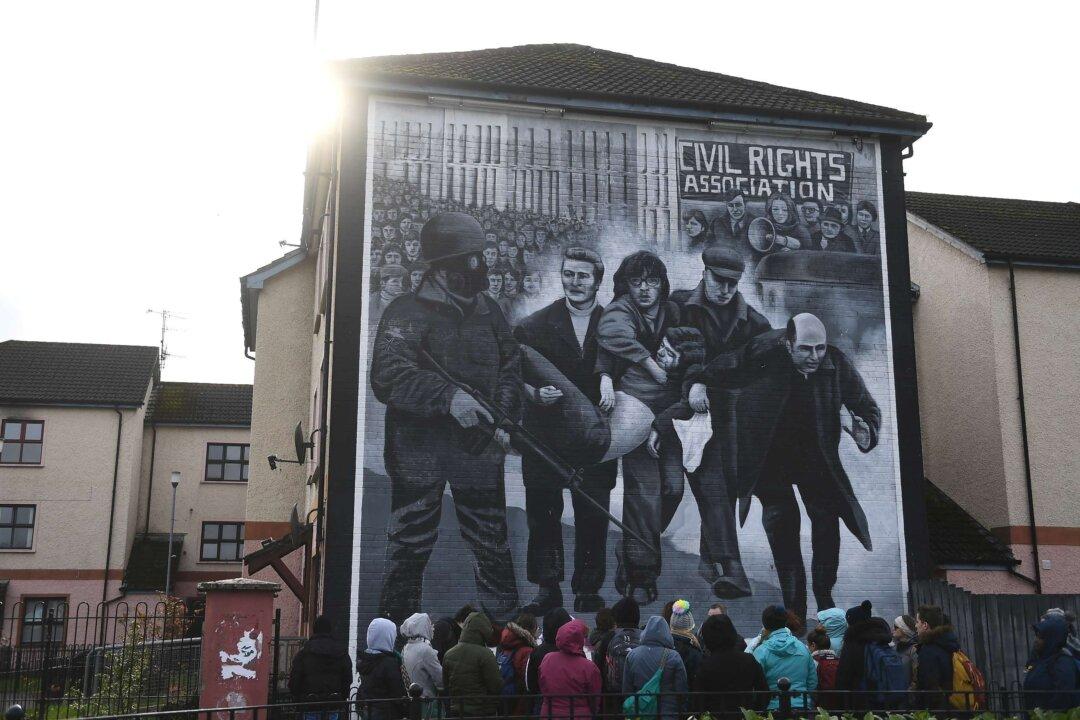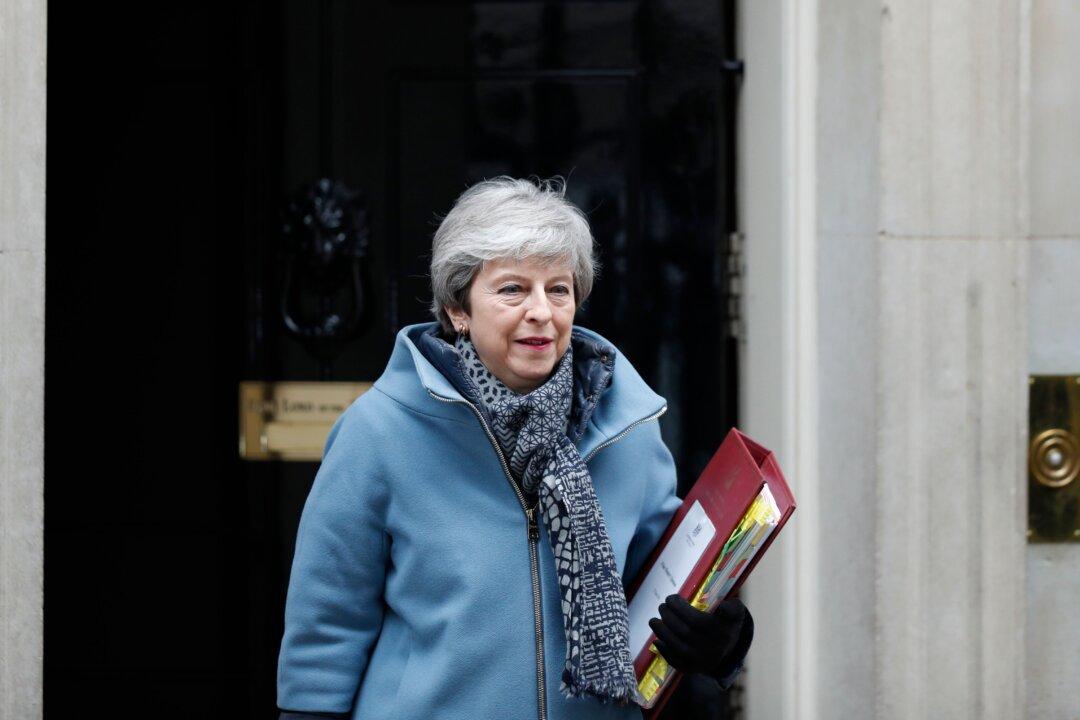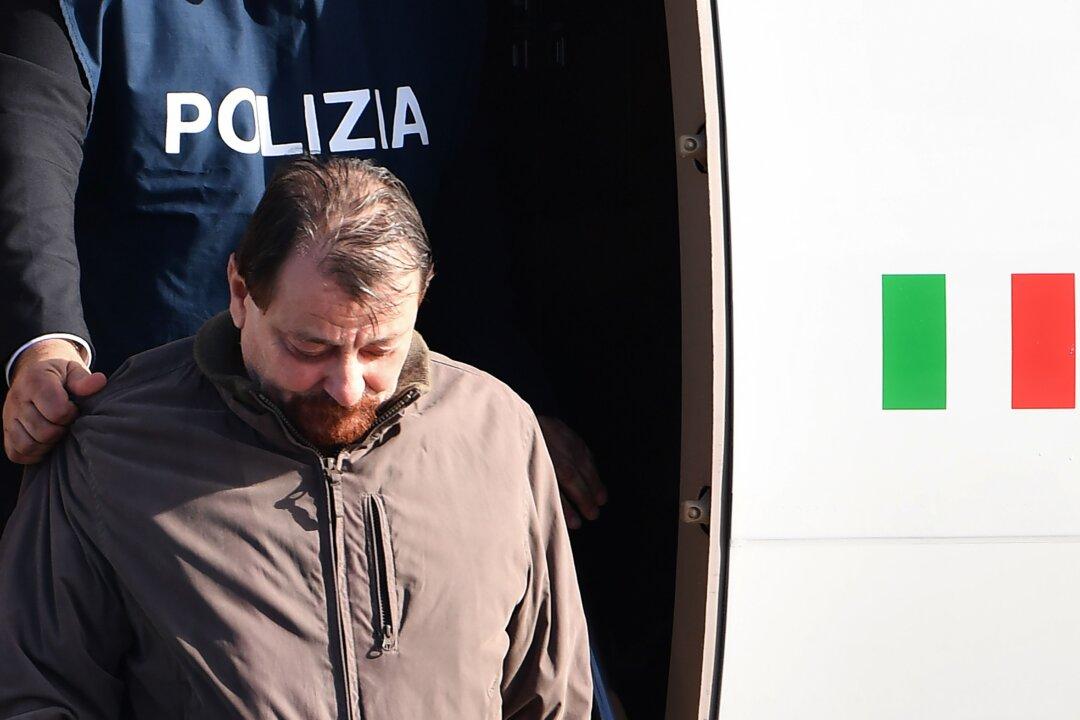LONDON—A former British soldier is to be charged with murder for killing two people more than four decades ago in Northern Ireland on what would come to be known as Bloody Sunday.
British soldiers opened fire at a protest march in Londonderry, Northern Ireland, on Jan. 30, 1972, killing 13 people and injuring 14 others. Another person later died in the hospital from his wounds.




